More than 2,700 killed in past three years in Africa – mostly the vulnerable white rhino
Jane Dalton
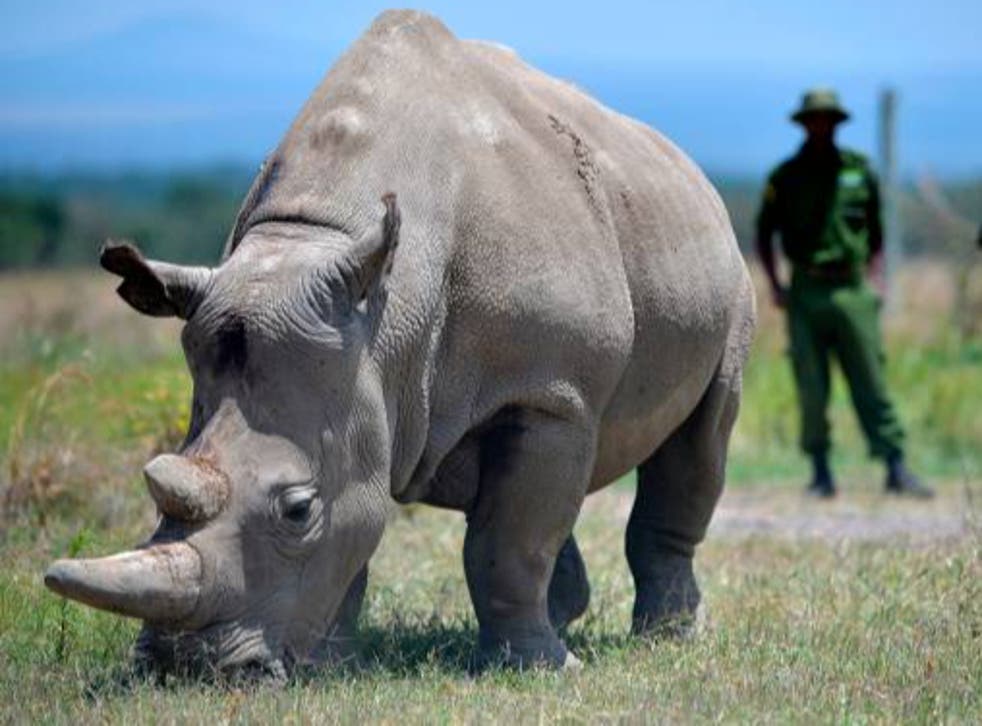
Numbers of white rhino in Africa plummeted by almost 12 per cent
(AFP via Getty Images)
African rhino poaching rates have fallen since 2018, figures show – but thousands are still being illegally hunted, threatening the species’ future, experts warn.
In 2015, killings hit a peak of 5.3 per cent of the species’ population, but last year they dropped to 2.3 per cent, according to a report.
Covid-19 lockdowns meant poaching rates in 2020 dramatically reduced in several African countries, the report authors say.
However, at least 2,707 rhinos were still poached across Africa between 2018 and last year.
“The overall decline in poaching of rhinos is encouraging, yet this remains an acute threat to the survival of these iconic animals,” said Sam Ferreira, scientific officer with an African rhino specialist group.
Recommended
Botswana’s imported rhino poaching crisis
“To support the growth of rhino numbers, it is essential to continue active population management and anti-poaching activities for all subspecies across different range states.”
The report, by specialist groups for the International Union for Conservation of Nature (IUCN) and conservation organisation Traffic, looked at changes in populations from 2018 to 2021. It says nine in 10 poaching crimes were in South Africa, mostly of white rhinos in Kruger National Park, home to the world’s largest population of white rhino, which is “vulnerable” on the IUCN red list of threatened species.
As a result, white rhino numbers in Africa plummeted by almost 12 per cent – from 18,067 to 15,942 – between 2018 and last year.
By contrast, populations of the rarer critically endangered black rhino rose from 5,495 to 6,195 – just over 12 per cent.
Overall, Africa’s rhino population declined from an estimated 23,562 in 2018 to 22,137 at the end of 2021.
“To support the growth of rhino numbers, it is essential to continue active population management and anti-poaching activities for all subspecies across different range states.”
The report, by specialist groups for the International Union for Conservation of Nature (IUCN) and conservation organisation Traffic, looked at changes in populations from 2018 to 2021. It says nine in 10 poaching crimes were in South Africa, mostly of white rhinos in Kruger National Park, home to the world’s largest population of white rhino, which is “vulnerable” on the IUCN red list of threatened species.
As a result, white rhino numbers in Africa plummeted by almost 12 per cent – from 18,067 to 15,942 – between 2018 and last year.
By contrast, populations of the rarer critically endangered black rhino rose from 5,495 to 6,195 – just over 12 per cent.
Overall, Africa’s rhino population declined from an estimated 23,562 in 2018 to 22,137 at the end of 2021.
South Africa lost 394 rhinos to poaching in 2020, while Kenya recorded no rhino poaching that year. It’s thought lockdowns helped rein in illegal hunting.
But as Covid travel restrictions lifted, some range states reported an increase in poaching. Last year, South Africa reported 451 cases and Kenya six.
In Asia, estimates of numbers of the critically endangered Sumatran rhino dropped from between 40 and 78 to 34 and 47.
But the report says there were no reports of illegal killings of Sumatran rhinos despite the large drop in numbers.
Recommended
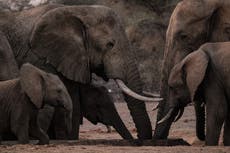
Young Zimbabweans volunteer to learn anti-poaching
Some 11 rhino poaching cases were recorded in Asia – 10 in India and one in Nepal – all of which involved vulnerable greater one-horned rhinos.
The report will go to a meeting of the Convention on International Trade in Endangered Species of Wild Fauna and Flora (Cites) in Panama in November.
Some 11 rhino poaching cases were recorded in Asia – 10 in India and one in Nepal – all of which involved vulnerable greater one-horned rhinos.
The report will go to a meeting of the Convention on International Trade in Endangered Species of Wild Fauna and Flora (Cites) in Panama in November.
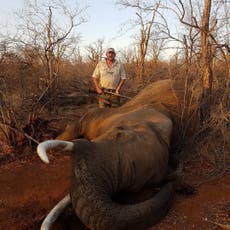
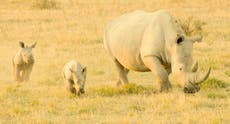
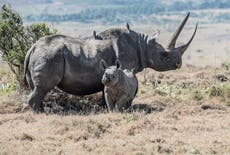
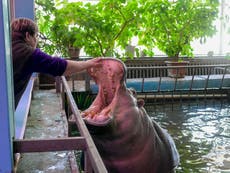

No comments:
Post a Comment